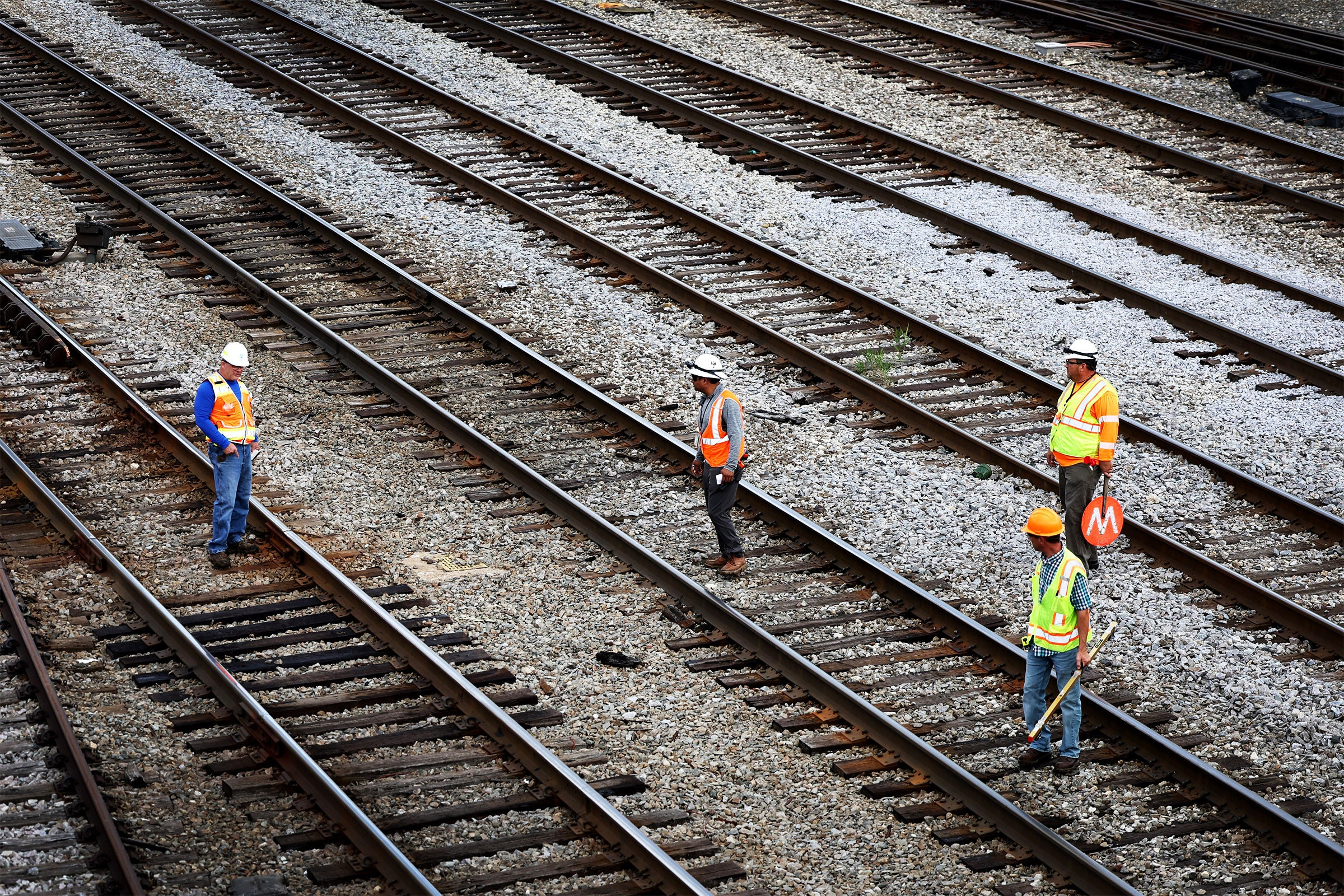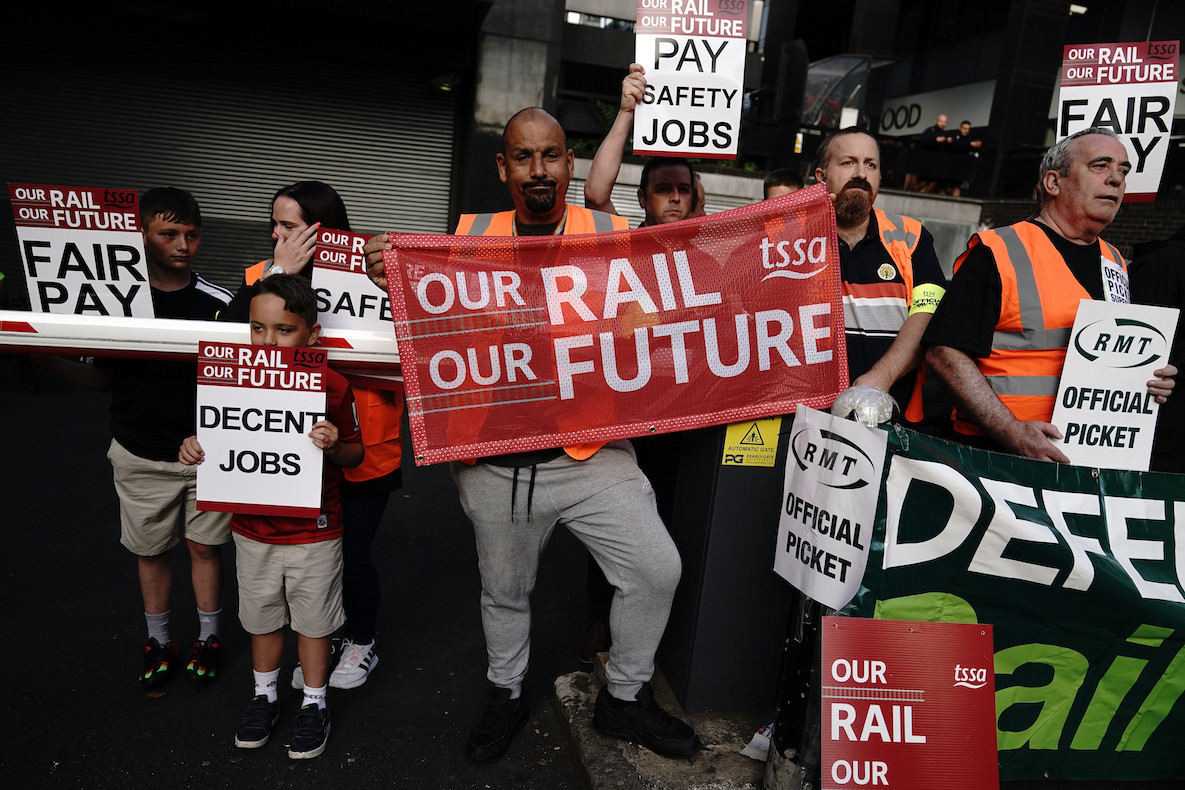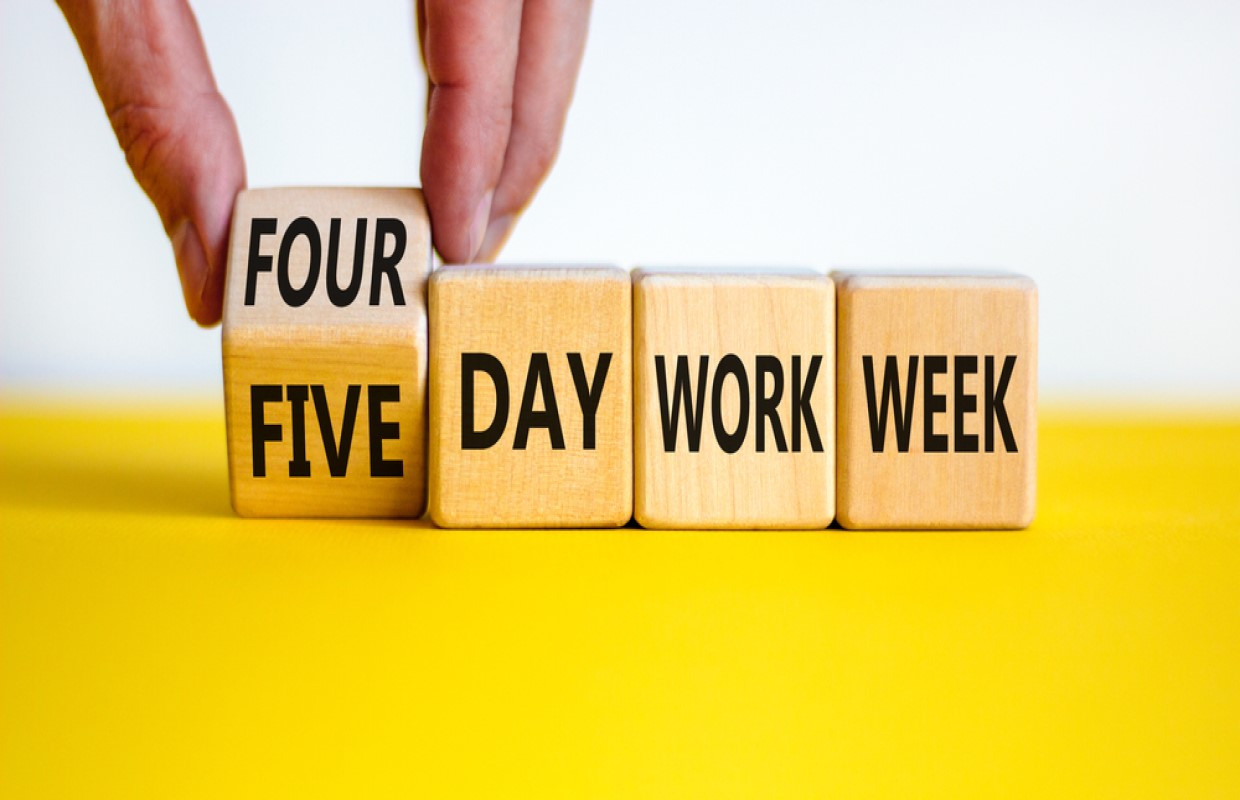Hours away from an unprecedented potential shutdown at the country's two main railways, a coalition of business groups has amplified their pleas for the federal government to step in and prevent a work stoppage that would upend supply chains — even as the prime minister stressed a deal at the table is the best outcome.
In a joint statement Wednesday, the Canadian Chamber of Commerce, Business Council of Canada, Canadian Federation of Independent Business and Canadian Manufacturers and Exporters say Ottawa needs to take action to ensure trains keep rolling.
"Otherwise, the steep price of inaction will be paid by Canadian families, workers, and businesses," the groups said.
A phased wind-down at Canadian National Railway Co. and Canadian Pacific Kansas City Ltd. is well underway as negotiators struggle to find common ground in contract talks with the Canada Teamsters Rail Conference.
Unless agreements are reached, rail service at both companies is poised to grind to a halt at 12:01 a.m. EDT on Thursday.
Under the Canada Labour Code, the federal labour minister can refer the dispute to the Canada Industrial Relations Board for binding arbitration and prohibit a strike or lockout in the interim, the business groups said.
Alternatively, they suggested the government pass back-to-work legislation — a step taken by the previous Conservative government during a rail strike in 2012, and a move it threatened to make in 2015.
Prime Minister Justin Trudeau urged the parties on Wednesday to hammer out a deal themselves rather than rely on federal intervention.
"My message has been straightforward. It is in the best interest of both sides to continue doing the hard work at the table to find a negotiated resolution," he told reporters in Ottawa.
"Millions of Canadians, workers, of farmers, of businesses right across the country are counting on both sides to do the work to get a resolution."
Both railways have issued lockout notices for a minute past midnight on Thursday, while the union has served a strike notice to CPKC that would kick in at the same time.
Potential Economic Impact
Their trains haul a combined $1 billion worth of goods per day, from cars and clothes to salt and cement, according to the Railway Association of Canada.
Canadian Pacific barred virtually all new shipments on Tuesday morning, with CN did the same Wednesday to avoid leaving any goods stranded on the tracks.
The Impact on Ports
Ports fear containers will pile up on the docks as cargo goes unmoved, causing congestion down the line and prompting some carriers to reroute to U.S. terminals.
"If railways are not picking up the goods that are coming in by ships, then pretty soon your terminals get filled up. And at that point you cannot take any vessels at the terminal anymore," said Victor Pang, chief financial officer at the Vancouver Fraser Port Authority.
He pointed to the 13-day strike by 7,400 B.C. dockworkers last summer as a cautionary tale, which manufacturers said blocked the flow of $500 million worth of goods each day.
"The kind of disruption that we had back in July, it took us multiple months to clear out," Pang said.
The number of vessel arrivals at the Port of Vancouver has already fallen 22 per cent over the past four weeks as shippers sought to steer clear of potential disruptions, according to supply chain platform Everstream Analytics.
The Impact on Commuters
More than 32,000 rail commuters across the country will also have to find new routes to the office if there is a work stoppage at CPKC.
Transit authorities have said select commuter lines that run on Canadian Pacific tracks in Toronto, Montreal and Vancouver will be suspended should dispatchers walk off the job.
The commuter lines affected by the potential work stoppage are TransLink’s West Coast Express in the Vancouver area, Metrolinx’s Milton line and the Lakeshore line's Hamilton GO station in the Greater Toronto Area, and Exo’s Candiac, Saint-Jérôme and Vaudreuil/Hudson lines in the Montreal area.
Riders on Via Rail's 480-kilometre Sudbury-White River line, which runs three times a week in Northern Ontario, would also be out of luck.
Calls for Intervention
With the deadline looming, business groups are increasingly vocal about the need for government intervention to prevent a strike. They argue that the potential economic impact of a rail shutdown is simply too significant to risk.
"The government must act now to prevent a national rail strike that would cripple our economy and devastate Canadian families and businesses,” said the Canadian Chamber of Commerce CEO, Perrin Beatty, in a statement.
The government has so far resisted calls to intervene, but with the clock ticking, pressure is mounting. It remains to be seen whether the government will take action or allow the strike to proceed.
The Stakes Are High
The potential impact of a rail strike on the Canadian economy is significant. With the country's two largest railways on the verge of a shutdown, the ripple effects could be felt across all sectors of the economy.
The potential consequences of a strike are vast, potentially impacting Canadians from all walks of life and the Canadian economy as a whole. It is a situation that requires careful consideration and proactive action from all involved parties.
Awaiting a Resolution
As the clock ticks down to the deadline, all eyes are on the negotiators. The fate of the Canadian economy, and the livelihoods of millions of Canadians, hangs in the balance.
The Canadian government's decision to intervene or not will have far-reaching consequences, and the outcome will likely shape the future of labor relations in the country. The world is watching as Canadians anxiously await a resolution.


















